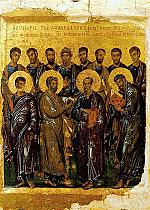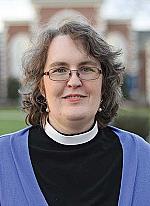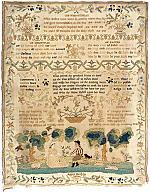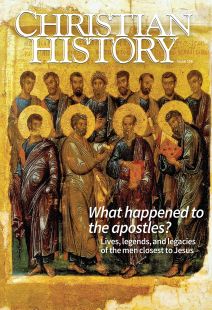Women of the Way
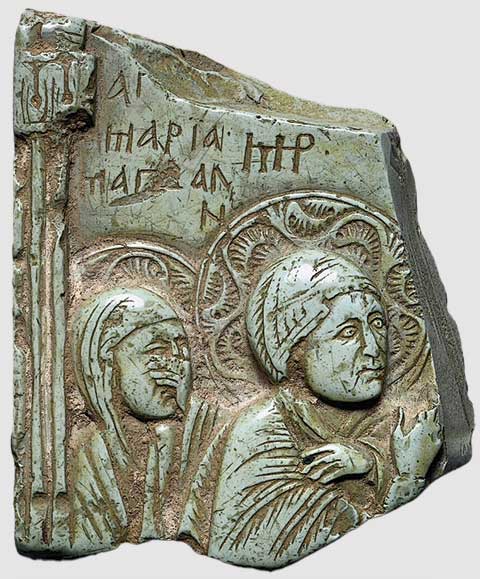
[Fragment of an Icon of the Crucifixion with Mary Magdalene and the Virgin Mary, 1300s. Steatite, Byzantine period—Penta Springs Limited / Alamy]
As Jesus traveled about with the Twelve, women disciples also accompanied them. Jesus healed many of these women and freed them from evil spirits. Luke named three: “Mary who was called Magdalene, from whom seven demons had gone out; Joanna, the wife of Chuza, Herod’s steward; and Susanna.” He added that there were “many others who were contributing to their support out of their private means” (Luke 8:1–3). Mark mentioned two others: “Mary, the mother of James the Younger and of Joses, and Salome” (Mark 15:40).
The Gospels do not state how others may have regarded the sight of a Jewish rabbi being followed by a group of both men and women, but presumably it scandalized their society. It was unheard of for any woman, respectable or otherwise, to leave home and become a traveling companion for an itinerant teacher. Nonetheless it is clear from the biblical account that women were among Jesus’s circle of followers and that he accepted them as learners and disciples. In his relationships with these women, Jesus departed significantly from the norm of his culture.
BOLD AND FAITHFUL
These women also played a special role in the Crucifixion, burial, and Resurrection of Jesus. Women were the last at the cross, the first at the empty tomb, and the first to see the risen Christ (see CH #17: Women in the early church). They showed themselves to be bolder than the men, and because of their faithfulness, women were entrusted with the task of announcing the Resurrection message: “He is risen from the dead!” Mary Magdalene, who is mentioned in all four Gospel accounts, has been called throughout history “the apostle of the Resurrection” or even “apostle to the apostles.”
Jesus, however, did not appoint women among his 12 apostles, whom he called for a special purpose. The pattern of 12 male apostles followed the structure of the 12 tribes of Israel. But after Jesus’s Ascension, a gathering of 120 disciples assembled in the Upper Room, including “the women and Mary the mother of Jesus” (Acts 1:14). These women were present at the choosing of the apostle Matthias to take the place of the betrayer Judas. Presumably these women again were part of the group who were all together on the day of Pentecost, when the Holy Spirit descended and the church was born. Women, though not named among the 12 apostles, participated in the founding of the church.
About two decades later, Paul wrote a letter to the Roman church and sent greetings to “Andronicus and Junias . . . who are outstanding among the apostles” (Rom. 16:7). The name translated “Junias” could be a masculine or feminine form of a name, so these two could be men who traveled together or a husband-and-wife team. The early church fathers believed Junias to be a female, and John Chrysostom (347–407) said of her: “Oh! How great is the devotion of this woman, that she should be even counted worthy of the appellation of apostle!”
By the third century, the term “apostle,” rather than implying a church office such as Paul held, instead meant that this man and woman served as itinerant evangelists and church planters whose work had become known for its fruitfulness. By his simple greeting, Paul implied that his female friend, Junias, served the church in an outstanding way, following in the tradition set by Jesus’s women disciples.
By Rex D. Butler
[Christian History originally published this article in Christian History Issue #156 in 2025]
Next articles
Questions: Lives and legends of the apostles
Questions to guide your discussion or personal reflection on the stories of the apostles
Recommended resources: Apostles
Investigate what happened to the apostles with these recommendations from CH’s authors and editors.
the editorsFast and Feasts: A note from the author
Christian faith is a story rooted in time and amenable to representation in a calendar
Jennifer Woodruff Tait



